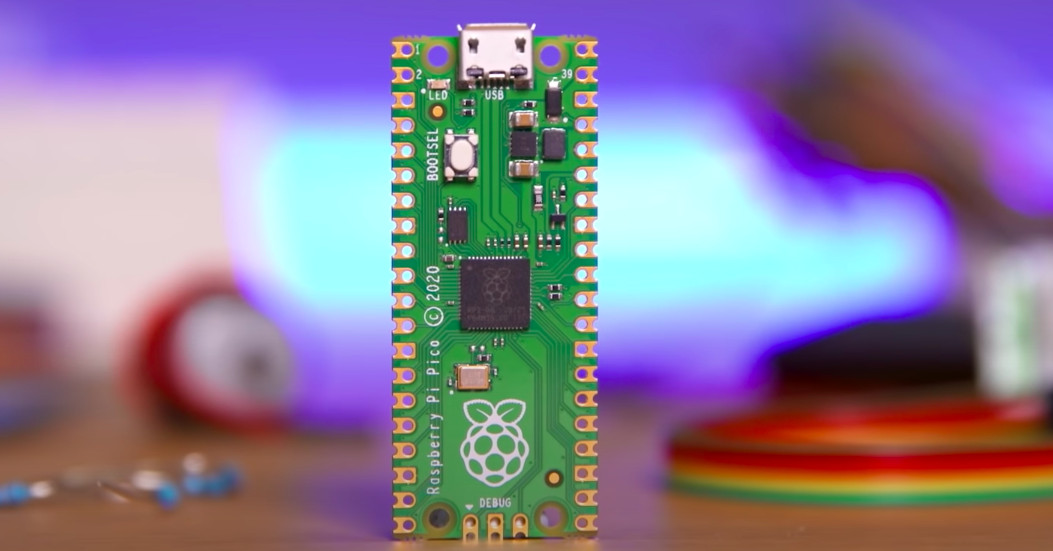The Raspberry Pi Foundation’s tiny computers can be used for anything from home cameras to cucumber separators, and now the group is branching out into microcontrollers and custom silicon. The Raspberry Pi Pico is the first step. It is a new $ 4 microcontroller that is smaller than the average Pi, has a custom chip powerful enough to be used in machine learning projects (according to The Raspberry Pi Foundation) and is already on sale.
In its introductory blog post, the company explains that today’s Raspberry Pis are often used in conjunction with a smaller microcontroller:
The Raspberry Pi takes care of heavy computing, network access and storage, while the microcontroller handles analog input and low latency I / O and sometimes provides a low power standby mode.
The company now has its own.
In an innovation for the microcomputer manufacturer, Pico is powered by a custom chip developed internally, called RP2040. The Pico card features the new chip, 2 MB of flash memory, a clickable button and a Micro USB Type B port. Here are the complete specifications of the RP2040:
Dual-core Cortex-M0 + @ 133MHz arm
264 KB (remember kilobytes?) On-chip RAM
Support for up to 16 MB of off-chip Flash memory via dedicated QSPI bus
DMA controller
Interpolator peripherals and entire dividers
30 GPIO pins, 4 of which can be used as analog inputs
2 × UARTs, 2 × SPI controllers and 2 × I2C controllers
16 × PWM channels
1 × USB 1.1 and PHY controller, with host and device support
8 × Raspberry Pi programmable I / O (PIO) state machines
USB mass storage boot mode with UF2 support, for drag and drop programming
These specs can go in one ear and out the other, but the best way to illustrate the potential of a new Raspberry Pi product is to see it used in something cool. The Raspberry Pi Foundation is partnering with companies like Arduino, Adafruit and Pimoroni to integrate the new RP2040 chip into other cards and devices. There is a complete list in the blog post announcing Pico, but some notable ones are Pimoroni’s PicoSystem game console, Adafruit’s Feather RP 2040 board and Arduino Nano RP2040 Connect.
The Raspberry Pi Pico is now available from approved retailers for $ 4. The microcontroller will also be distributed free of charge in the February editions of HackSpace Magazine.
